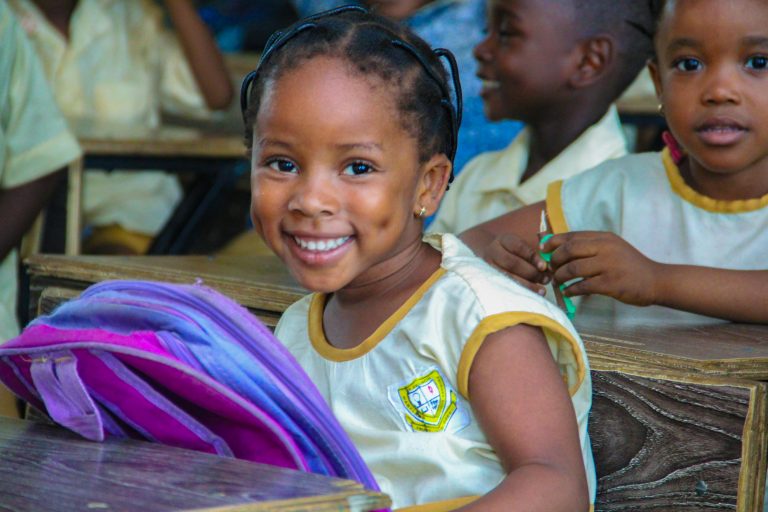Gender Equality
EKOEXCEL believes that girls should have the same opportunities as boys. Sadly, they face many more barriers. Empowering and supporting girls to succeed in the classroom and fulfil their potential in life is essential. Families, communities, and nations need educated girls to prosper and grow.
EKOEXCEL is empowering a new generation of confident, successful girls. If you’re an 11-year-old girl living in one of the world’s most marginalised communities, you face less access to education than your brother, a greater likelihood of economic and social marginalisation, the prospect of forced marriage, early pregnancy, and increased maternal mortality. Being a young girl in many communities can be the most difficult hand to be dealt.
- 63 million girls between ages 6-15 are out of school and 16 million girls between ages 6-11 never enter one
Only 34% of girls from the poorest households living in the poorest countries complete primary school - Currently in Nigeria, there are 18.5 million out-of-school children, 60% of these out of school children are girls (over 10 million), according to UNICEF
- Almost two-thirds of women in the north-west and north-east regions have no formal education
- Only 1 in 4 girls from poor, rural families complete Junior Secondary school education
- Gender equality in Nigeria was reported as 0.3333% in 2020, according to the World Bank.
Educated girls are healthier, have the skills to make choices about their own future, and can lift themselves, their community, and even their county out of poverty. For instance, a percentage point increase in girls’ education boosts GDP by 0.3 percentage points and raises annual GDP growth rates by 0.2 percentage points. Again, one extra year of education for girls increases their wages by between 10-20%. By educating girls we change the future of entire communities as women reinvest 90% of their income in their families, as opposed to 30-40% for men.
Mainstreaming women empowerment principles
While the pandemic has accelerated digital platforms for learning, earning, and connecting, some 2.2 billion people below the age of 25 still do not have internet access at home and girls are more likely to be cut off, according to UNICEF. Reports show that more boys than girls go on to have science careers, in addition to the increase in the number of out-of-school girls aged 5-14 years in Nigeria, which numbered about 10.5 million (UNICEF). Advocacy for girls’ education in Nigeria needs attention and remedial action, with specific programs instituted to reverse the gap in girl-child education, engendered by traditional cultural and religious prejudices.
The United Nations Women’s Empowerment Principles is a good way to show our focus. Formulated by the UN Global Compact and UN Women, the “Women’s Empowerment Principles (WEPs) are a set of Principles offering guidance to organisations on how to promote gender equality and women’s empowerment in the workplace, marketplace, and community.” The UN WEPs are “informed by international labour and human rights standards and grounded in the recognition that organisations have a stake in, and a responsibility for, gender equality and women’s empowerment.” This should be automatically embedded into all organisations and societal cultures but until it is, the principles offer a good guide.
Promoting gender equality in education
EKOEXCEL commissions all of its artwork and creative stories in text-books and work-books to ensure equal visibility of male and female characters, and specifically represent female characters in powerful, unconventional roles
Teachers are trained to call on both boys and girls in the classroom. As fewer girls than boys usually tend to volunteer in class, teachers are trained to practise more cold calling to ensure equal participation.
Professional development and classroom management techniques focus on encouraging girls to be leaders in and out of the classroom
Gender equality in schools
Female teachers, school leaders and Area Supervisors provide role models within the classroom and community (over 60% of our teachers are women)
A strict policy against the use of corporal punishment —meaning girls become more confident, expressive and engaged in class.
Girls are given school leadership roles through appointments of Head Girls and Prefects.
Girls can wear dresses, skirts or trousers depending on school activities.
All schools have well maintained single-sex sanitation facilities
Local partnerships with organisations teaching girls about sanitation and sexual health
Regular child safeguarding training for teachers and school leaders.
Equality of educational opportunity and accountability
Through its innovative wireless technology, EKOEXCEL engages in systematic gender-responsive monitoring to ensure effective evaluation of the progress of each girl child across indicators like attendance and academic performance
Attendance is carefully monitored to ensure girls can not drop out from the system unnoticed.
Parent-teacher associations meetings parents form a network of empowered partners—seeking accountability for their girls’ education




